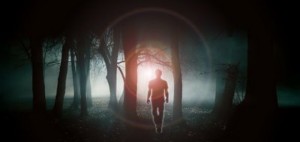
This week on the top 10 strange phenomena of the human mind, we look into the main categorizations of Deja experiences and focus on Deja Visite, a rarer Deja condition that psychologists and medical researchers have not been able to understand so well. Déjà vu is more common, with most people having experienced it. Dr. Vernon Neppe, a researcher who published a journal titled ‘The Psychology of Déjà vu’, describes the condition as a subjectively inappropriate impression of familiarity of a current experience with some undefined past. A significant number of researchers in the field of psychology and psychiatry have published papers on Deja experiences.
For instance, professor C.T.K of Madras Christian College published a paper in 1964 that categorized déjà vu into three classes: normal, pathological and precognitive and telepathic. Dr. Neppe, in his book, has listed 20 different types of Deja experiences, including Deja extend, Deja fact, Deja eprouve, Deja pense, Deja senti, Deja raconte, Deja su, Deja voulu and Deja vecu and Deja trouve among others. Of these, Deja visite is a fairly less common experience that involves a poorly-comprehended knowledge of a new location/place.
New Town Familiarity
Deja visite translates to ‘already visited.’ Some people who have experienced this strange phenomenon of the human mind have said that it comes strongly but fades pretty soon.
But wait, before you continue reading, make sure you join my list so you'll get all my Mentalizer secrets and tips for using your brain to achieve success in life:
Think about a situation where you know your way around a foreign landscape or a new town, despite the fact that you have never really been there. In your mind, you are aware that you can’t possibly have acquired this knowledge, but still it’s there. Deja visite has everything to do with geographical and spatial relationships while on the other hand Deja vecu has all to do with temporal occurrences. In his book, titled ‘Our Old Home’, Nathaniel Hawthorne wrote about a castle that he visited. He was fully knowledgeable about this new place, including its layout, despite the fact that he had never been there before. Nathaniel was an American novelist who was born in 1804. Later on, he was able to associate the experience with an Alexander Pope poem he had read years before, in which the castle was precisely described.
Theories
More Specific Feeling
Deja Visite comes as a precise feeling. It is paradoxical in that you feel that you know a certain place although you have never been there before. Imagine visiting New York, Mumbai or Beijing for the first time and feeling that you know the exact routes to your hotel or other destination in the city. The practical impossibility of having this knowledge makes Deja visite a more nerve-racking condition.
Theories
Although Deja visite is very rare, there are multiple theories trying to explain its existence. Some explanations that have been put forward revolve around out-of-body experiences, while others are about reincarnation and straightforward logical explanations. Most people are unable to differentiate between Deja visite and déjà vecu. The key difference is that in Deja Vecu, the dominant role is played by an emotion while in Deja Visite the core concept is geographical and spatial dimensions.
 Mentalist Ehud Segev (The Mentalizer) New York City NYC Successful Mind
Mentalist Ehud Segev (The Mentalizer) New York City NYC Successful Mind






